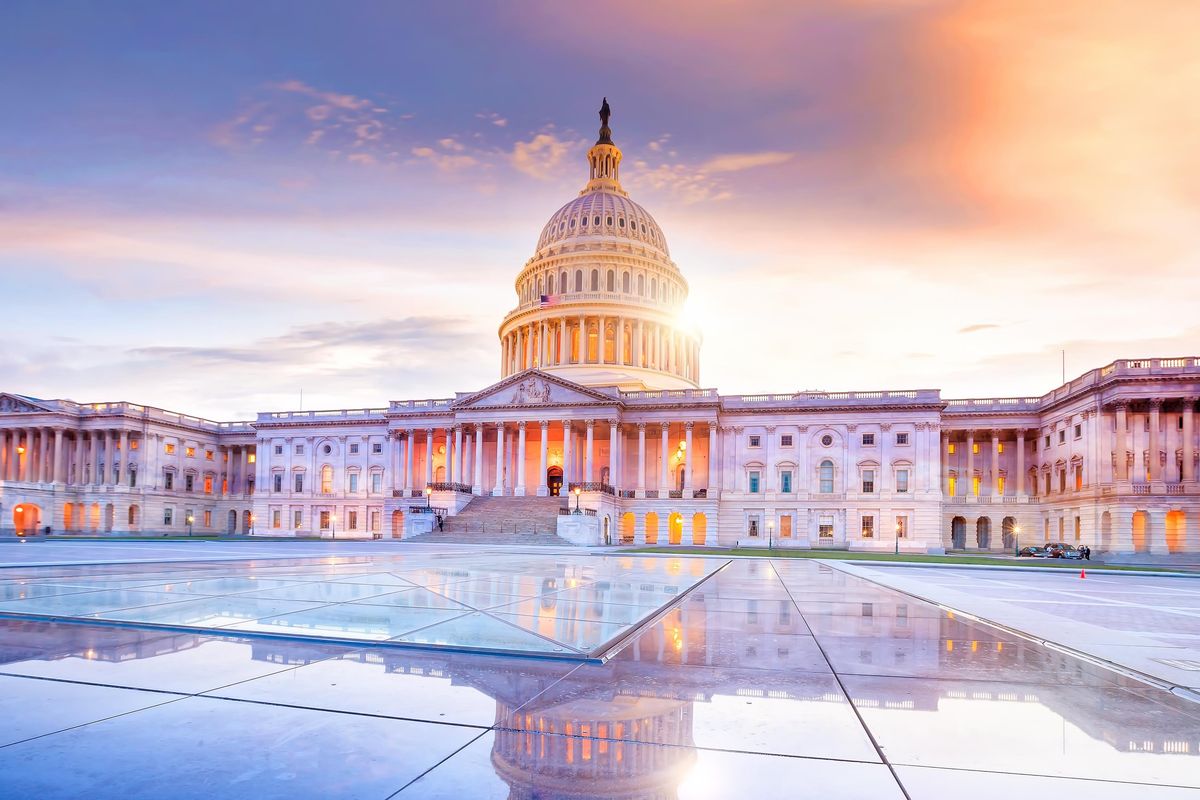1. The American Rescue Plan signed into law
The $1.9 trillion American Rescue Plan Act of 2021, which President Joe Biden signed into law on March 11, 2021, contains many provisions that could improve women's access to affordable health care and coverage. The new law bolsters Medicaid, the public insurance program that covers 77 million low-income Americans, including more than 37 million kids and 16.5 million nonelderly women. Under the American Rescue Plan, states can expand coverage for postpartum women from 60 days to 12 months. Access to care in the postpartum period can reduce risks of mental health and physical complications and of negative outcomes in subsequent pregnancies.
The bill offers financial incentives for 12 states that haven't expanded Medicaid under the Affordable Care Act to do so. Of the 4 million adults under age 65 who could get health insurance this way, half are women.
The new law expands subsidies to anyone who would otherwise have to pay more than 8.5% of their income on health insurance premiums, regardless of their income. It also increases the subsidy amounts for people who already qualify, maximizes subsidies for anyone on unemployment benefits during 2021, and subsidizes COBRA for people who lose their jobs and health benefits between April 1 and September 30, 2021.
2. Healthcare.gov is open — it's time to get health insurance
In January 2021, President Biden signed an executive order opening Healthcare.gov for a special enrollment period between February 15 and May 15, 2021, and later extended the deadline through August 15. Nearly 30 million Americans were uninsured before the pandemic. In the first few weeks of this special open enrollment period, more than 200,000 people signed up.
3. The Affordable Care Act turns 11
The Affordable Care Act (ACA) was signed into law March 23, 2010. In honor of the anniversary, the U.S. House of Representatives Health Subcommittee of the Energy and Commerce Committee held a hearing on March 23, 2021, to discuss ways to strengthen the ACA. The hearing, called "Building on the ACA: Legislation to Expand Health Coverage and Lower Costs," comes on the heels of the largest health insurance coverage and affordability legislation — the American Rescue Plan — since the passage of the ACA. The hearing kicked off the process to review 18 proposed bills that would build on the ACA to expand access to quality, affordable health care. Specific proposals under consideration would reduce consumer out-of-pocket costs, expand funding for outreach and education about health insurance options, and strengthen coverage for low-income children. With millions of Americans struggling to access and pay for health care and health insurance, this Congressional effort is important and timely.
4. Congress holds hearings on maternal health crisis in America
The Health and Human Services subcommittee of the U.S. House of Representatives Appropriations Committee held a hearing, "Addressing the Maternal Health Crisis," on March 23, 2021, to address pregnancy-related physical and mental health complications. The hearing addressed racial disparities in maternal and newborn health. HealthyWomen supports this congressional effort to raise awareness about the relatively high rate of pregnancy-related deaths in the United States and to reduce racial and ethnic disparities in birth outcomes. The subcommittee's goal is to remove barriers to medical and mental health care for all pregnant and postpartum women.
5. "Momnibus" bill to reduce black maternal deaths reintroduced in Congress
In February 2021, the Black Maternal Health Momnibus Act was reintroduced after failing to gain traction in 2020. The legislation, introduced by members of the Black Maternal Health Caucus, would fund community-based and mental health services as well as research and data collection to understand and improve Black maternal health outcomes. In 2017, the United States had more than 17 pregnancy-related deaths per 100,000 live births. Black women are three times more likely to die than white women, according to the Centers for Disease Control and Prevention (CDC). The bill has more than 100 co-sponsors and tries to address the comprehensive set of factors underlying racial inequities in maternal health.
6. Gender Policy Council established to identify and reduce gender inequities
By executive order, President Biden created a White House Gender Policy Council to coordinate and advance the administration's commitment to gender equity and equality across the government. Council members are charged with reviewing federal policies that disproportionately create or uphold barriers for women and girls, especially for women and girls of color, and with making plans to reduce those barriers. The Council's far-reaching scope includes gender-based violence, access to comprehensive health care, economic security and the needs of caregivers.
7. HealthyWomen joins coalition Long COVID Alliance
HealthyWomen joined 50 other organizations in the Long-COVID Alliance to shed light on and improve outcomes for "long-haulers," those patients with long-term symptoms as a result of Covid-19. The coalition's goals are to educate policymakers, advance research, and empower patients with the goal of improving health care and outcomes for long-haul Covid-19. One study showed more than half of Covid-19 patients had symptoms four months after hospitalization and other research is underway to better understand the long-term effects of the disease. The Long-COVID Alliance was formed in February 2021 and includes a wide range of patient advocates, scientists and drug developers.
8. COVID-19 vaccine side effects disproportionately affect women, CDC study shows
According to the CDC, women received 61.2% of vaccine doses administered between December 14, 2020, and January 13, 2021. But 79% of adverse events (negative reactions) to the vaccines were reported in women. This rate was consistent across both the Pfizer-BioNTech and Moderna vaccines. Still, side effects from these vaccines are rare. With more than 13 million vaccine doses administered, fewer than 7,000 adverse events were reported; 90% of reported adverse events were considered non-serious. HealthyWomen encourages women to get appropriate vaccinations.
9. Women's health has suffered during the Covid-19 pandemic, according to new study
The Covid-19 pandemic has taken a toll on women, according to a new study from the Kaiser Family Foundation. The national survey, conducted late in 2020, showed that women were more likely than men to have gone without preventive or other recommended healthcare services during the pandemic and to report difficulty getting healthcare appointments. Women in fair or poor health were more likely to skip medical care. More than half of women (51%) reported that pandemic-related worry or stress had affected their mental health, compared with 34% of men.

